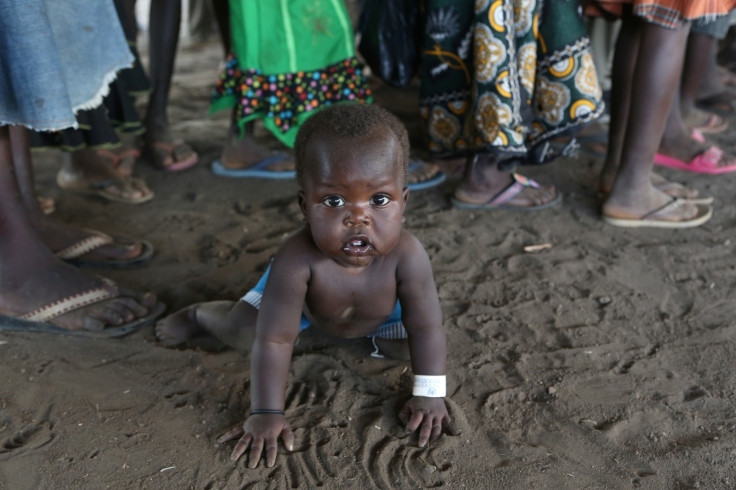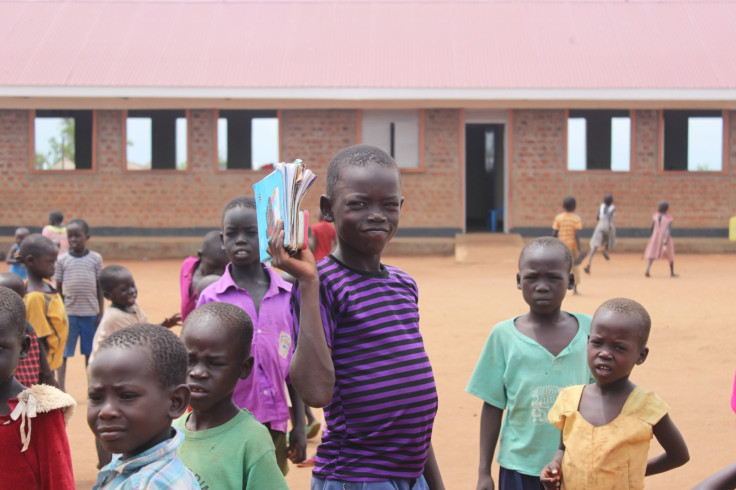Bidi Bidi one year on: Inside the world's largest refugee camp
Bidi Bidi is hosting nearly 300,000 people, the majority of whom have fled the brutal civil war in South Sudan.
The Bidi Bidi refugee settlement, in northern Uganda, opened in August 2016 to home thousands of people fleeing the South Sudanese civil war.
In April, the 250km<sup>2 settlement became the world's largest refugee camp, giving shelter to 270,000 people.
Three months later, the number of refugees stands at 272,168, with Ugandan officials expecting it to increase to 300,000, due to family reunions and births.
As South Sudan's conflict continues to displace thousands of people, humanitarian organisations say some 2,000 South Sudanese cross into Uganda every day.
Of these, an average of 100 are children, who are often unaccompanied and whose mental and physical health is at risk due to the atrocities they witnessed and were subjected to.
World Vision, one of the charities helping the government cope with the refugee influx, has deemed the crisis as a "massively unreported situation".
The organisation has so far reached 700,000 refugees in five districts across northern Uganda. Among other projects, the NGO helps children cope with trauma caused by war and abandonment, helping them to build their new lives in the host country.
"At the moment we are still in the emergency phase and we are looking at things like feeding people, but longer interventions need more money," Judy Moore, World Vision's Response Director in Uganda, told IBTimes UK.
Funding gap

Uganda, which the UN said it is now hosting "more refugees than any other country in Africa", is home to nearly 1.3 million refugees from 13 countries. Of these, at least 950,000 are South Sudanese.
In June, Kampala and the UN appealed for $2bn (£1.5bn, €1.7) in funding to cope with the refugee crisis. Although the appeal has been met with a positive response – including €85m pledged by the European Union – it has failed to reach its target.
"We have received good support from the international community and the media, which have done a great job creating awareness [on the refugee crisis] and good response from donors, but the response is smaller compared to the needs," Robert Baryamwesiga, from the Office of the Prime Minister's department of refugees and settlement commandant at Bidi Bidi resettlement camp in northern Uganda, told IBTimes UK.
"The emergency operation took around $400m, less than what we wanted, but we tried to prioritise needs," he continued.
"Now we have to say: How can we move on and offer sustainable services and allow refugees to live a much more normal life? We need $1bn to achieve what we call 'minimum standards', to construct schools, motorise water systems and build new facilities, staff more people in areas and stabilise the settlements."
South Sudan's conflict explained
South Sudan became world's newest nation in 2011, after it broke away from Sudan. However, the newly created country has known very little peace, as it descended into war just two years after its creation.
The conflict erupted in 2013 when President Salva Kiir, of the Dinka ethnic group, fired his deputy Riek Machar – from the Nuer group. Machar then became a rebel leader.
Fighting between rebels and government troops has killed an estimated 50,000 people, amid allegations of crimes against humanity committed by both sides, including rape, torture and the use of child soldiers.
The conflict has progressively continued along ethnic lines, with tit-for-tat violence targeting Dinka and Nuer tribes, prompting the UN to repeatedly warn the country is on the verge of a Rwanda-style genocide.
Kiir and Machar have agreed on several peace deals – the last of which was signed in August 2015 – but have failed to control their troops, who have broken every ceasefire since 2014.
Earlier this year, the government declared a unilateral ceasefire to promote peace. However, in in May, rebels loyal to Machar rejected the government's offer of dialogue.
IBTimes UK travelled to Uganda courtesy of Word Vision UK, one of the NGOs helping the Ugandan government cope with the refugee influx. Fore more information about the charity's work, please visit their website.

© Copyright IBTimes 2024. All rights reserved.























